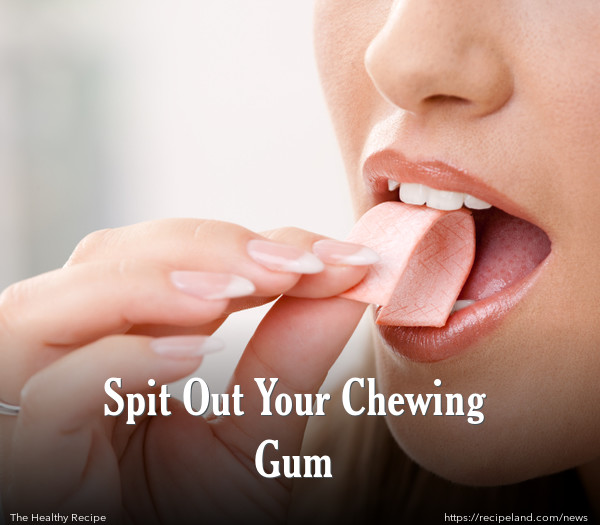You might have heard that chewing gum can help you relieve stress, curb your appetite, keep your mouth moist, or freshen your breath. You probably haven’t heard about the dark side of gum chewing - the risks it poses to your health!
Gum chewing lead to physical problems, from TMJ and headaches to rotting teeth. Put aside your favourite pack of chewing gum and keep reading to find out exactly what happens to your body when you chew gum.
Chewing Gum Can Lead to Worsening of TMJ and Headaches
Frequent gum chewing can lead to temporomandibular joint disorder (TMJ), a condition that causes pain in the jaw. TMJ is linked to fatigued jaw muscles and overuse of the temporomandibular joint.
A 2013 study from Tel Aviv University examined the habits of teenagers who experienced frequent migraines. These teens were asked to stop chewing gum for one month. Two-thirds of the teens participating in the study reported fewer headaches and relief from their symptoms.
Researchers believe that gum-chewing caused the teens to overwork their temporomandibular joints, leading to strain and fatigue of their jaw muscles and triggering their migraines.
Researchers concluded that these effects of chewing gum on the TMJ joints and jaw muscles could worsen the symptoms that TMJ sufferers experience. If you feel the need to chew and keep your TMJ joint moving, try to eat an apple, pear, or small salad.
Chewing Gum Can Make You Reach For Junk Food
You might think that chewing gum will help you curb your appetite, especially if you tend to eat when you are bored. Well, chewing mint flavoured gum before a meal can actually make you skip fresh produce and fill your plate with junk food.
A study conducted by Christine Swoboda of Ohio State University and Jennifer Temple of the University of Buffalo found that participants who chewed mint gum before a meal were less likely to eat fruit and veggies as part of their meal.
Ms. Swoboda speculates that the minty flavour of the gum could be causing a reaction in your mouth, making fresh fruit and vegetables taste bitter and unpleasant. Researchers also found that gum-chewers tend to eat fewer meals than non gum-chewers. However, the meals they did eat were packed with calories.
Gum Chewing Can Make IBS Worse
Irritable bowel syndrome (IBS) is a problem with the GI tract which causes sufferers to experience constipation, diarrhea, gas, cramping, and pain in the abdomen. Chewing gum can make some of these symptoms worse, especially gas. When you chew gum, you swallow air, which leads to a build-up of air in the stomach. This air moves into the bowel system, causing spasms in the colon. These spasms can lead to constipation, diarrhea, abdominal pain or cramping.
Sugar-free gum is even worse! The artificial sweeteners can cause gas and diarrhea as well. Even if you do not have IBS, chewing gum sweetened with sorbitol could cause you to have diarrhea, as sorbitol is actually used as a laxative to loosen stool.
Gum Chewing Can Rot Your Teeth
Chewing sugar-sweetened gum causes tooth decay androgen rot. When the sugar from the gum coats your teeth, the bacteria in your mouth forms plaque to try to turn the sugar into energy.
As the plaque grows and thickens, the bacteria will transform the sugar into a sticky glue, adhering to the surface of your teeth. This glue-like plaque is difficult to brush off your teeth or rinse away with saliva, causing tooth decay.
Chewing Gum Can Release Mercury Into Your System
If you have amalgam dental fillings, your gum-chewing could be putting mercury into your body. Amalgam fillings are made from mercury, silver, and tin.
A study from Sahlgrenska University Hospital in Gothenburg, Sweden found that gum-chewers with amalgam dental fillings had higher amounts of mercury in their urine and blood than non-gum chewers. The more amalgam fillings participants had, the higher the amount of mercury researchers found in their blood and urine.
Mercury causes damage to the kidneys, central nervous system and brain. While the small amount released into your body by gum chewing probably won’t hurt you, it certainly isn’t good for you!
SOURCES: https://www.prevention.com/health/health-concerns/6-gross-side-effects-chewing-gum?s=1;https://www.dailymail.co.uk/health/article-2301030/Chewing-gum-make-FAT-minty-taste-makes-sugary-food-tempting.html;https://www.medcentertmj.com/healthy-living/gum-chewing-cause-tmj/;https://solvingtheibspuzzle.com/chewing-gum-and-gas.html;https://www.rense.com/general6/merc.htm










Comments